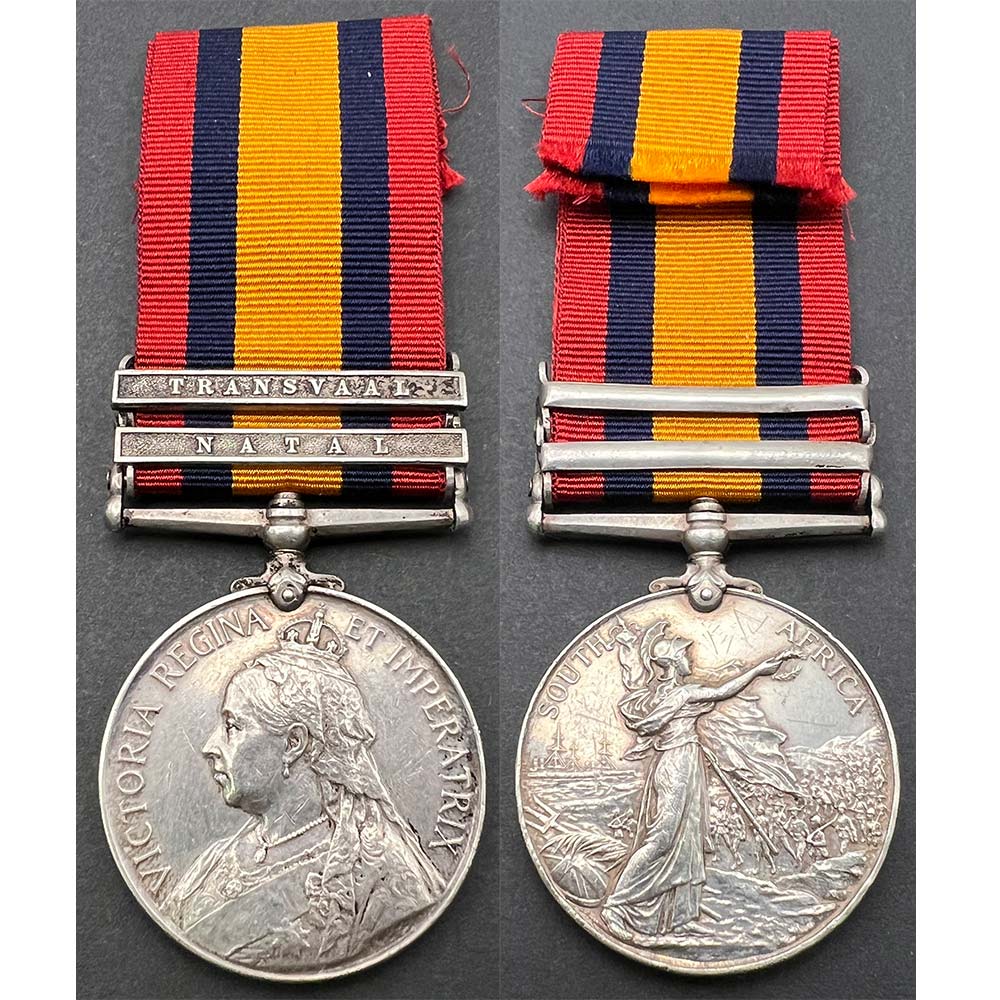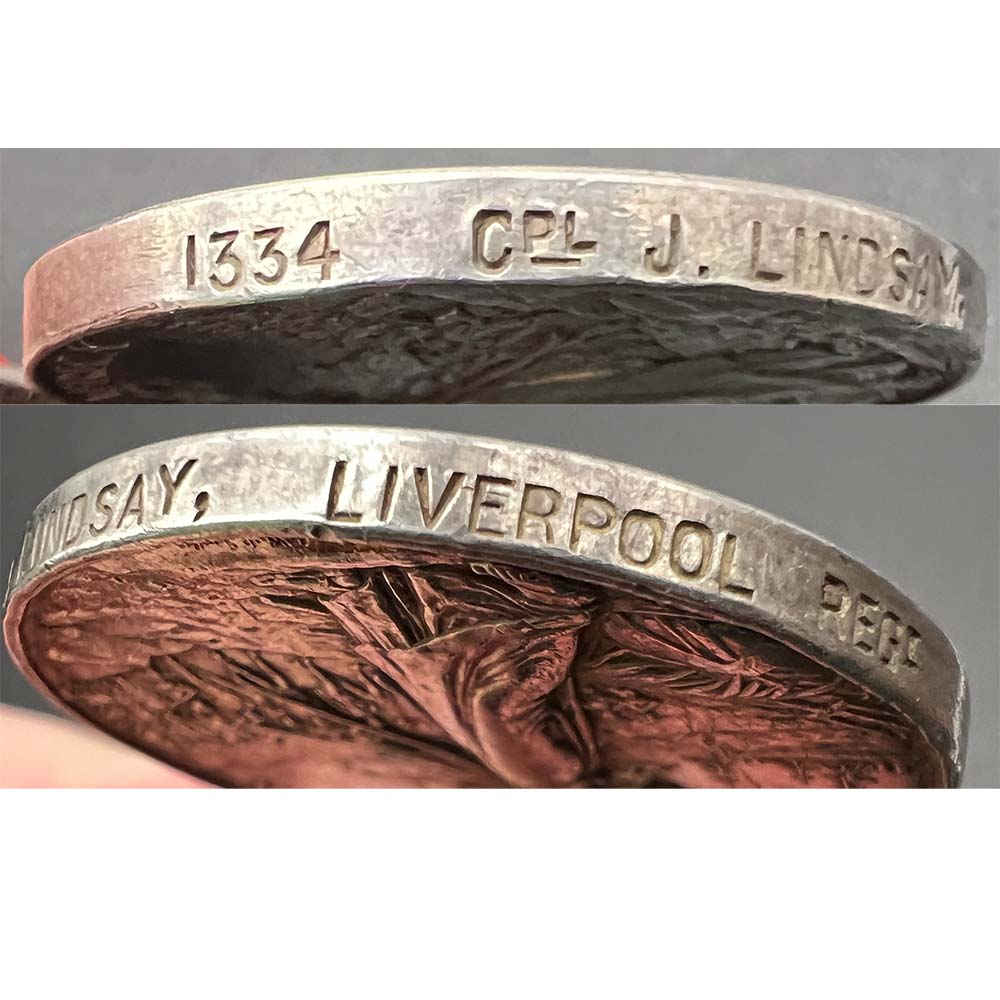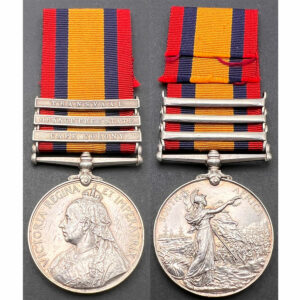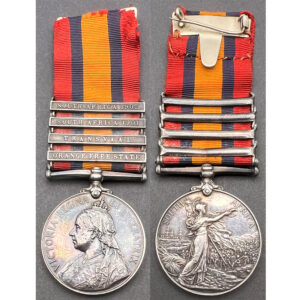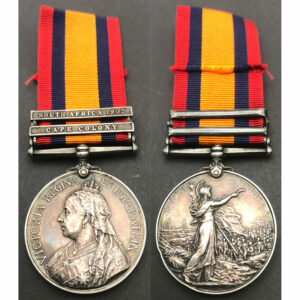Description
Queen’s South Africa, 2 bars, Natal, Transvaal, 1334 Corporal James William Lindsay, Liverpool Regiment. Joined Army 1885, never left until his death on service in 1908.
Officially impressed: “1334 Cpl J. Lindsay, Liverpool Regt”
An unusual Natal clasp entitlement.
Also earned the KSA for additional service in the war.
With copy service papers.
John William Lindsay was born in St Helens, Liverpool circa 1868.
Shortly after turning 18, he joined up with the Liverpool Regiment, and would never leave.
Saw the following service:
Home, 17th Sept 1885 – 14th Dec 1896
Barbados, 15th Dec 1896 – 6th Nov 1897
South Africa, 7th Nov 1897 – 6th Nov 1902
East India, 7th Nov 1902 – 25th Jan 1904
Home, 26th Jan 1904 – 20th July 1908, discharged dead.
Having been a Militiaman from the local 2nd Volunteer Battalion, Lancs Fusiliers, he signed up for full time service on 17th September 1885 at Warrington.
Spent some years as a Drummer in the regiment, from 2nd July 1889 to 17th September 1891.
Promoted to Lance Corporal, 22nd August 1893, then Corporal on 2nd November 1893.
Appointed Lance Sergeant, 22nd April 1895, Paid Lce Sergt on 28th September 1895
Reached Sergeant on 17th December 1895.
Due to a mishap in South Africa, he would end up with his medal with the rank of Corporal, having been “Tried by D.C.M. for disobeying a lawful command and sentenced to be reduced to the rank of Corporal” on 10th Jan 1900.
Appointed back to Lance Sergeant, 8th April 1901, Promoted Sergeant 29th October 1902.
On 4th January 1906, he had completed his 21 years, but rather than take his hard won pension he would be “Permitted to continue in the service beyond his 21 years, Authy O.C. Troops Warrington”
2 years later on 20th July 1908, he died whilst stationed at Bulford Camp of “Natural Causes” caused by a Haemorrhage of the Lung.
